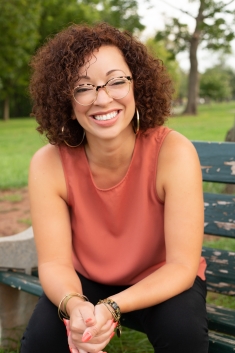Therapeutic Foundations and Interventions When Working with Survivors of Interpersonal Violence
REGISTRATION IS CLOSED
Interpersonal violence affects every community and generation. This webinar will provide the clinical foundation for working with those impacted by interpersonal violence including power and control dynamics, clinical assessment, safety planning and avoiding vicarious trauma. Emphasis will be placed on the neurobiology of trauma, promoting post-traumatic growth, updates to New Jersey law and current trends of power and control dynamics using technology.
Learning Objectives
As a result of attending this presentation, participants will be able to:
- Describe the forms of interpersonal violence and the impact on their well-being as survivors.
- Assess the clinical needs of survivors through an intersectional, empowerment lens while recognizing the stages of trauma recovery.
- Identify clinical interventions and promote post traumatic growth.
- Implement self-care strategies to combat vicarious trauma, compassion fatigue and burnout.
Instructor Bio

Dr. Vazquez is the Director for the Office for Violence Prevention and Victim Assistance (VPVA) for Rutgers University – New Brunswick. For over fifteen years, Dr. Vazquez has been a passionate advocate for survivors of interpersonal violence and trauma. Her career began at Womanspace, the lead domestic and sexual violence agency in Mercer County, New Jersey, where she served as the Bilingual Coordinator for most of her nine-year tenure. In that capacity, she served as a family court legal advocate, provided individual and group therapy in both English and Spanish, coordinated outreach to the Spanish speaking/immigrant community and trained the community on numerous issues related to trauma and culture. After her time at Womanspace, she continued to utilize her clinical work by providing trauma informed services to underserved communities and has brought that passion and skillset to Rutgers.
Dr. Vazquez earned her Bachelor of Arts in Psychology from Rider University, Master of Arts in Counselor Education from The College of New Jersey, and Doctorate in Philosophy in Counselor Education and Supervision from Regent University. She is also a recipient of the Minority Fellowship Program through the National Board of Certified Counselors (NBCC). Her areas of interest include the intersection of trauma, culture, and spirituality along with human trafficking and organizational wellness. Beyond her professional identity, Dr. Vazquez thoroughly enjoys food, spending time in nature with friends and family, and traveling to new places to enjoy more food.
Dr. Vazquez has no conflicts of interest for this program.
Contact Us
For questions, please contact: ce@gsapp.rutgers.edu
Continuing Education Information
Rutgers Graduate School of Applied and Professional Psychology (GSAPP) is recognized by the New York State Education Department's State Board for Psychology as an approved provider of continuing education for licensed psychologists #PSY-0123.
LMFT/MFT and LPC/LAC Licensed in New Jersey: Programs approved by the American Psychological Association are acceptable sources of continuing education credits. Please see https://www.njconsumeraffairs.gov/regulations/Chapter-34-Subchapters-10-31-Professional-Counselors.pdf, Section: 13:34-15.4 APPROVAL OF COURSES OR PROGRAMS on page 27. For all other professional licenses and certifications, please reference your issuing state board regulations regarding reciprocity of continuing education credits.

Rutgers Graduate School of Applied & Professional Psychology is approved by the American Psychological Association to sponsor continuing education for psychologists. Rutgers Graduate School of Applied & Professional Psychology maintains responsibility for this program and its content.
